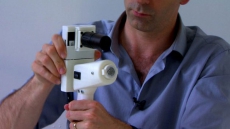Researchers have uncovered new properties of special HIV antibodies called "broadly neutralising antibodies" or BNAbs, a discovery that could shed light on the pathway the BNAbs take to develop and speed up development of HIV vaccine.
Only a small subset of HIV-infected individuals produce BNAbs.
A vaccine that works by eliciting BNAbs is, therefore, a major goal, and this work suggests that strategies for such a vaccine should focus on speeding up the antibody evolution that occurs after every immunisation.
"This result suggests that a BNAb-eliciting vaccine is possible after all," said lead author Thomas Kepler, a professor of microbiology at Boston University School of Medicine in the US.
Antibodies develop from immune cells known as B cells. When B cells are confronted with foreign elements (known as antigens), some of them experience a high rate of mutations resulting in the substitution of an amino acid within the antibody for another.
When whole strings of amino acids are inserted or deleted, this is known as an indel.
Less than four percent of human antibodies contain indels; in BNAbs this figure is more than 50 percent.
The researchers studied one particular BNAb called CH31, which has a very large indel, to see what role these indels might have played in the acquisition of broad neutralising activity.
They found that the indel was the key event in the development of CH31.
Just putting the indel into antibodies that did not originally have it, increased its effectiveness eight-fold; taking it away from ones that did have it initially, made them much worse, the researchers said.
"When tested on their ability to broadly neutralise HIV, only those CH31 antibodies with indels were able to accomplish the task," Kepler said.
The study appeared in the journal Cell Host and Microbe.





